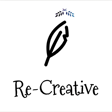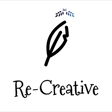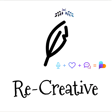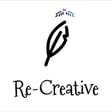Speaker
about? I just got to say, Joe, very elegant segue. I have decided to talk about the show Veronica Mars, which is the Kristen Bell vehicle created by Rob Thomas. Excellent choice. I watched all three seasons and the movie of that. Mark, have you seen it? No. You got some good viewing ahead of you. This is one that I haven't seen. Yeah. This doesn't normally happen, so that's good. I love Kristen Bell. So, yeah. Yeah. Why is that your pick? Well, it's interesting, you know, thinking about back to our original talking about a, you know, strong female character of Anne with an E from Prince Edward Island. I think, you know, it immediately Veronica Mars shares with that story an incredible female character. And it's a bit of a coming of age again and again in the show, which I love coming of age stories, especially with women who come of age multiple times. And personally, the show to me, I did not watch it when it originally aired, I think 2004. I started it after I had my first baby and I was tied to the nursing chair and had no way to leave my seat and had a crying baby or a nursing baby. And I binged the first season on a recommendation and it was the greatest gift because the character was wonderful. It made me laugh. I thought from a filmmaking perspective, I did really feel like it was artful. I loved the cinematography. It's a noir. It's like a new noir set in a high school with this wonderful dynamic character who's sassy and also dealt with so many real things. It's an emotional show as well. So I was in the perfect spot in my own life to take the show in. And then the nature of the show from, you know, I see myself as a creative producer. And so I love all of those juicy storytelling things. But I also love the show as an example of someone not waiting for permission and to keep reinventing and finding a way to exist because the show had such an interesting production life. And Kristen Bell kind of comes of age as an artist through the different timelines of the production of the show. Because if you don't know, there's three seasons, which didn't all land at the same home. Then they crowdfunded a movie. Warner Brothers wasn't ready to make the movie, but they were willing to distribute the movie if it was done independently. And Rob Thomas and Veronica, sorry, Kristen. That's some good acting right there. They put together an amazing crowdfunding campaign, which was just, you know, mind blowing that they decided we can do this, even though, you know, the property already existed. And, and it was not a typical path of fundraising for a project that size. And then even after that, they put together another series, another show that on Hulu, not even anywhere near the CW where they began. And it's like nine, 10 years after. And so Kristen is now, she's a completely different performer. The show kind of launched her and now she's established. And so watching that as well. So it kind of affected me tremendously from the content, but also the producing story of it was so inspiring. Yeah. Now, I haven't seen that last season set so far. So far away. Yeah. And does it hold up? Yes. It's shorter. I think it's only eight to 10 episodes, but it ties up all the characters. You know, it makes the show complete. And it's very interesting. I mean, if you're a fan of the show, you're a fan of the characters and you just want to see them. And it follows a similar format in that, you know, each season has a major mystery. If you don't know, Veronica is a private eye. She's a detective working with her father in their private investigating company. And she's just in high school in the beginning. And she's in high school in the beginning. Yeah. So the first two seasons are high school. Then the third season is college. Then the movie when she's moved to New York and she's about to take a job as a lawyer. She's gotten out of the PI business. I can't wait for the nursing home. I know. No, there's a little bit of that like Richard Linklater thing, you know, of like seeing, you know, another. Boyhood. Yeah. Yeah. Or before the before trilogy, which was another candidate for talking to you. See, I'm going to sneak in all my candidates for talking to you about. Anyway, but you see those characters over several decades in different shows. And this was by accident that that happened. But the fans, you know, sort of. And I think the talent, the actors were really in love with these characters. And so those two things working together grew this fourth season after the crowdfunded movie. And I think it's wonderful. I think it's good that we'd move beyond the network model of 22 episodes. It's more like a limited series and it works. Yeah. Well, it's an interesting time period too, right? Because it's like, so it was on the CW and like, when was the fourth season? When was that? I think it was like 2016 maybe. Yeah. So that's quite a bit later. So yeah. Television has changed quite a bit in those 15 years or 14 years. Yeah. No, I have to give a shout out to a Canadian actor, Enrico Colantoni, who's he's, he's just so great. He's so wonderful. I had known him from Just Shoot Me, which I also, I loved that, you know, sitcom. And he's wonderful. And his relationship with Veronica is another major reason to enjoy the show, this father-daughter relationship that's so special. And even in the pilot, you know, it's set up that Veronica has sacrificed a lot of her social status because she believes in the integrity of her father and she believes in her father who had been the sheriff and was disgraced through his own. He had a mistake where he thought that someone really prominent in the community was responsible for a crime or was involved in a crime. And so he was shunned. But she, you know, she loses everything in a way for being with her father and standing with him. And that just starts this beautiful relationship that continues all the way through the series. And I think he really brings something to it where all good shows involving high school, I think, treat the high schoolers as full people with agency and who are learning about the world and have a lot to offer. And he had such respect, I think, for those characters that it gives another level to the show because then all the teenagers, it's not a patronizing view of what they're going through. And there's some heavy stuff that's addressed, even though it was on the network. Oh, yeah. You know, there's trauma. There's very real things that are part of why I was immediately taken with it, because it was speaking about rape culture, speaking about assault in really honest ways, and yet still making an entertaining show with a lot of variety in terms of storyline. And it wasn't just, and this is nothing against euphoria, but it wasn't on that sort of dark track. It was that's a fact of high school and of as and certainly a female life. And it was addressing it. And Enrico, I felt like, you know, gave all of that legitimacy in the way he performed with Kristen. I loved him so much in Galaxy Quest. Oh, yeah. Inspired. An inspired performance. Actually, that was one of the best moments of acting when he realizes these people lie for a living. That moment is just devastating. Yeah, yeah. He's so funny and so good at swinging between comedy and earnest, vulnerable, real connections. So vulnerable, yeah. Yeah. moments and also it will make you laugh because life is ridiculous. Now, as a professional in the film industry, I want to ask you, how wide do you think the target is when it comes to casting? If you had cast Veronica Myers with different actors, could it have still worked or how important was it that you had Enrico Colantoni and Kristen Bell? It would have been different. I feel like shows have a way of growing with the artists that make you feel like it couldn't have been any other way. But we feel that way about almost everything we love. So I think you have to feel when you go into a project that you're going to find the right person, but it's just like marriage or anything. I'm sure there are people who feel like there's only one right person, but I believe there's a lot of right people and it's a matter of timing and then collaboration. So it wouldn't have been the same. And it's hard for me to imagine who would have been the other person because they become one thing, Kristen and Enrico made it their own. It's very hard, especially with Kristen to think like, who else would have been Veronica? And maybe they wouldn't have found the person that was as wonderful as Kristen, you know, to bring it, to make it something that I want to now talk about however many years later. But I think there are so many, that's the wonderful thing about actors. You know, when I work with one that I love, I just want, I just am hungry to work with them on, on the, whatever that project is that will make them sing the best, you know? So I think, you know, I know with Veronica Mars, they, they saw like over 500 people and Kristen was just the one that spoke to Rob. And I know he felt that way about a lot of the roles. But when a story is good and a character is good, you have to believe there are so many wonderful actors finding their way to the project. There would have been somebody, but it wouldn't have been the same. It would have been totally different. Could you, could you bring your husband in? I want to ask him about the marriage casting. And with that, Joe brings the podcast to a dead hole. Well, I've just, I was okay. I'll jump in and try to save the day. So thinking about casting, I remember well, well before Peter Jackson made the Lord of the Rings movies, one of the favorite conversations my brother and I used to have on our long canoe trips together was how do we cast the Lord of the Rings? And we would get into shouting arguments in the middle of a lake about, no, they could never do it. And yeah, I don't think anybody that we thought of was cast in that movie, but it was such great casting. It was great casting. And now it's like, you know, I mean, Vigo is, come on. It's impossible to think of anyone else's air. And yet he was cast. He was cast at the last minute. I know. So it's the magic happened. But you have to believe that we still would have adored that movie. But I don't know how. Yeah. It would have been a different experience, though, right? Yes. Yeah. The actors are very important to the process. And Gandalf. Yeah. Yeah. Yeah. Well, let me ask you then. Have you ever thought or would you like to work on a series like Veronica Myers? Well, it's funny because I that that I did. It did strike me that I'm not really involved in television as much as as features and short form. But yeah, I do think that particularly as a director, I would love to work in episodic television, even though film is more of a director's medium and television, you're a little bit work for hire because the showrunner is setting the tone and what the show is. But I think the speed, I like that production life and working with the actors. I think I would, I would love that, you know, as a creator, nothing's come to me yet where, you know, definitely things have happened where I thought, Oh, that could be a limited series and idea I have, but generally the ideas that come to me are more in the feature space, but I would love, I definitely have aspirations to, to be in the director's chair in television. I think that would be great fun. Do you have, for people looking to be a producer, because I've always thought of the role of producer as very intimidating, you know, being the one to have to primarily generate the funds and frequently a lot of funds for some of these movies, because even indie film can be, I know professional filmmakers don't think, you know, $250,000 is a lot of money, but for someone just starting out, that would be a fair amount of money. What advice would you have for people looking to get into that game? How do you go about that? Well, the biggest thing I could say about becoming an indie producer is to just start producing work. And that means going back to making a list of what resources do you have? Whose stories do you want to champion? And how can you make those two things align? And you start small that way. But there's no reason that a small story that's captured with tools that are inexpensive can't make a splash and start to build for you on to the next project that now that you have a wider network and aren't afraid to ask for things and to excite people about it, you start to grow both the resources you have to shoot with, but also the people you have to draw on and bring in to collaborate. And you never know what door is going to open once you start talking passionately about the project and the biggest thing you can do is invite people to make an impact with you versus just give you money to make something. You know, you have to start to think of the people that invest in you, both in their time and as an audience and eventually with money as patrons of the art. For example, one of the features we made was called Quality Problems. And it's a comedy about breast cancer. And in raising money, those things don't always go together, right? I'm already sold. In raising money and trying to get people on board for the project, we came across this feedback as we were building our campaign that said, you know, you've got to try to bring people on board by asking them to help you give cancer the middle finger. You know, when you support this movie, when you collaborate on this movie, you're doing something bigger than just telling this one story. You're saying to survivors that you see them. You're speaking directly to caretakers and saying it's okay to laugh. We can have power over cancer by laughing at it and laughing at something gives you power over it. And that sort of approach is the kind of approach I think you have to have with every project. And it's what empowers you to feel bigger than just that little ask, you know, or that one person. You're able, just like, you know, a lot of times we don't like talking about ourselves. Talking about your project can feel very intimidating. But when you can find your way with the project to what's the impact I want this to have on the world or my audience, even if my audience is only three people, you know, what impact am I trying to have? That's what I'm selling. That's what I'm trying to get people on board with. And suddenly your voice gets louder and you seem bigger in the room and people want to get on that train and that's producing, you know, I think, and giving yourself permission to do that and be who you are, no matter what stage you are in the journey, you know, also tell producers, young producers or people who are starting to produce mid-career, you know, you shouldn't pretend to know things you don't, just be where you are and be honest about what your skill sets are and what you know and what you don't know. And just that energy means so many more people want to help you and meet you where you are. You'll be surprised at how much support you can get. Sometimes you're asking about the wrong project. If there's not momentum, you got to shift and be ready to try a different project. The timing might not be right. You're learning, you're getting feedback. This isn't, or I don't have the right pitch. Great advice. Yeah. I love that. I love that so much. Yeah. And if I had any sense, I would stop there because that's a great, but I don't. So, but no, I just want to ask, is there anything else you would like to say about Veronica Myers or the subject of producing an indie filmmaking? Yeah, I do hope that people will revisit Veronica Mars. I think that Kristen Bell is a really special performer. And I think there aren't enough characters that I certainly didn't






